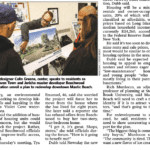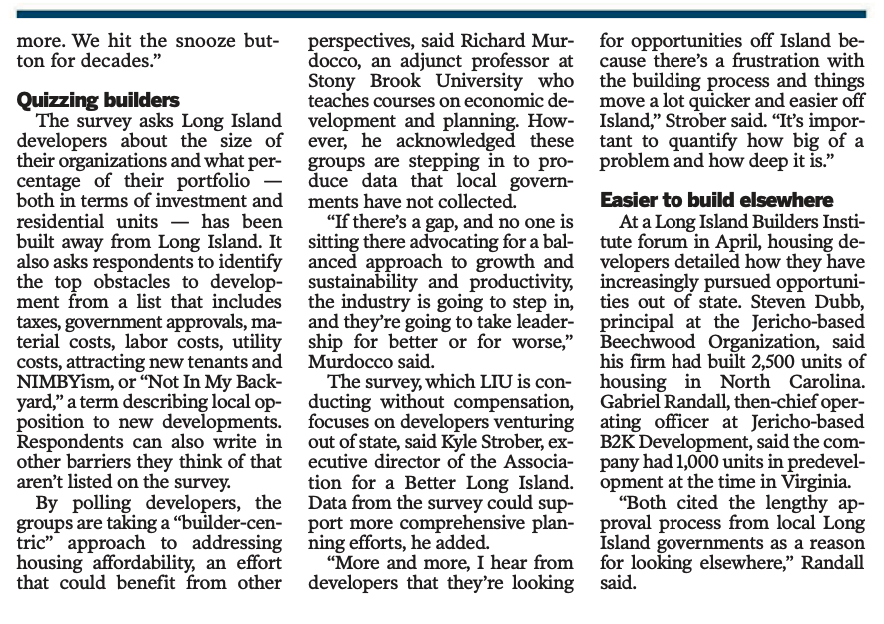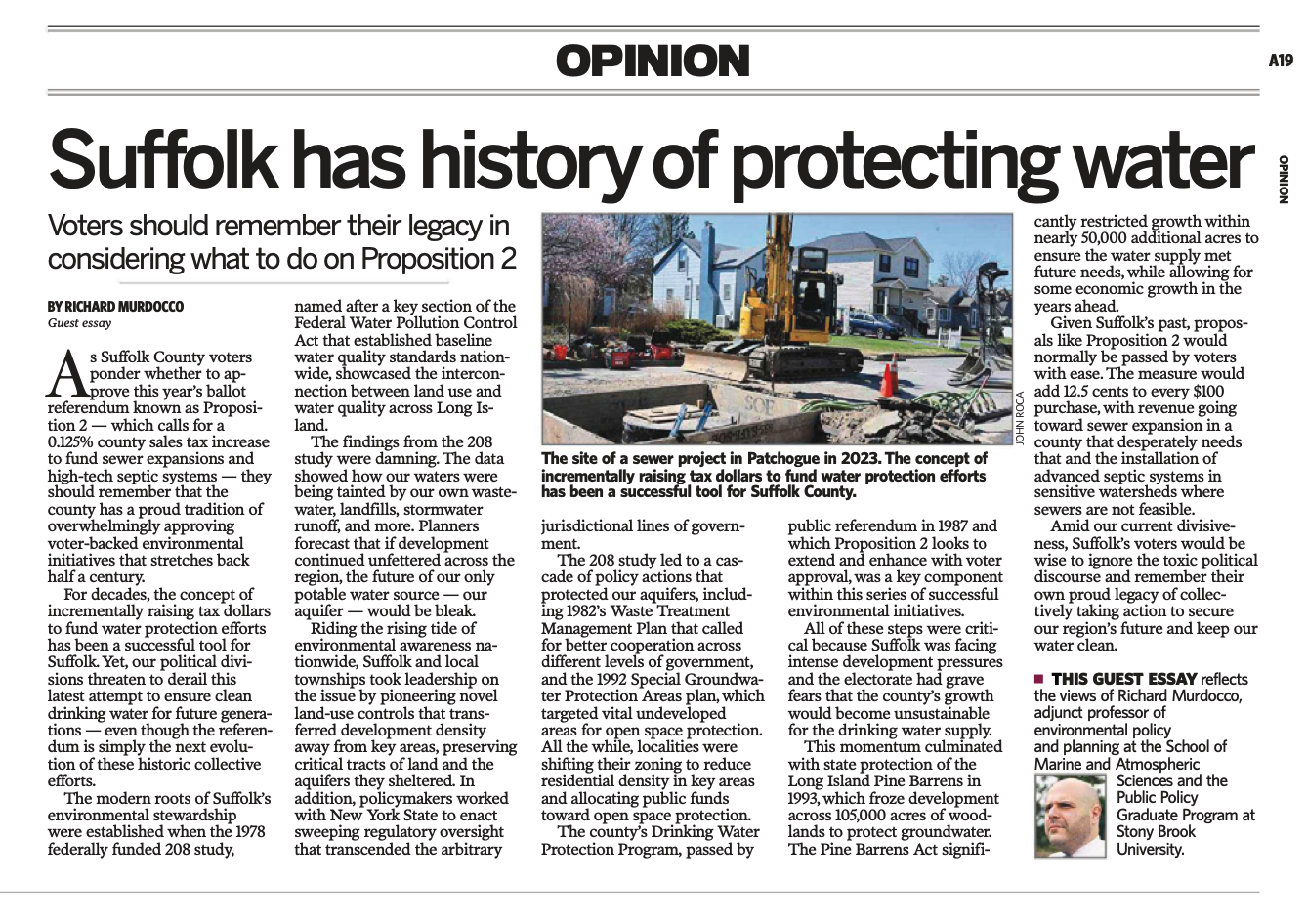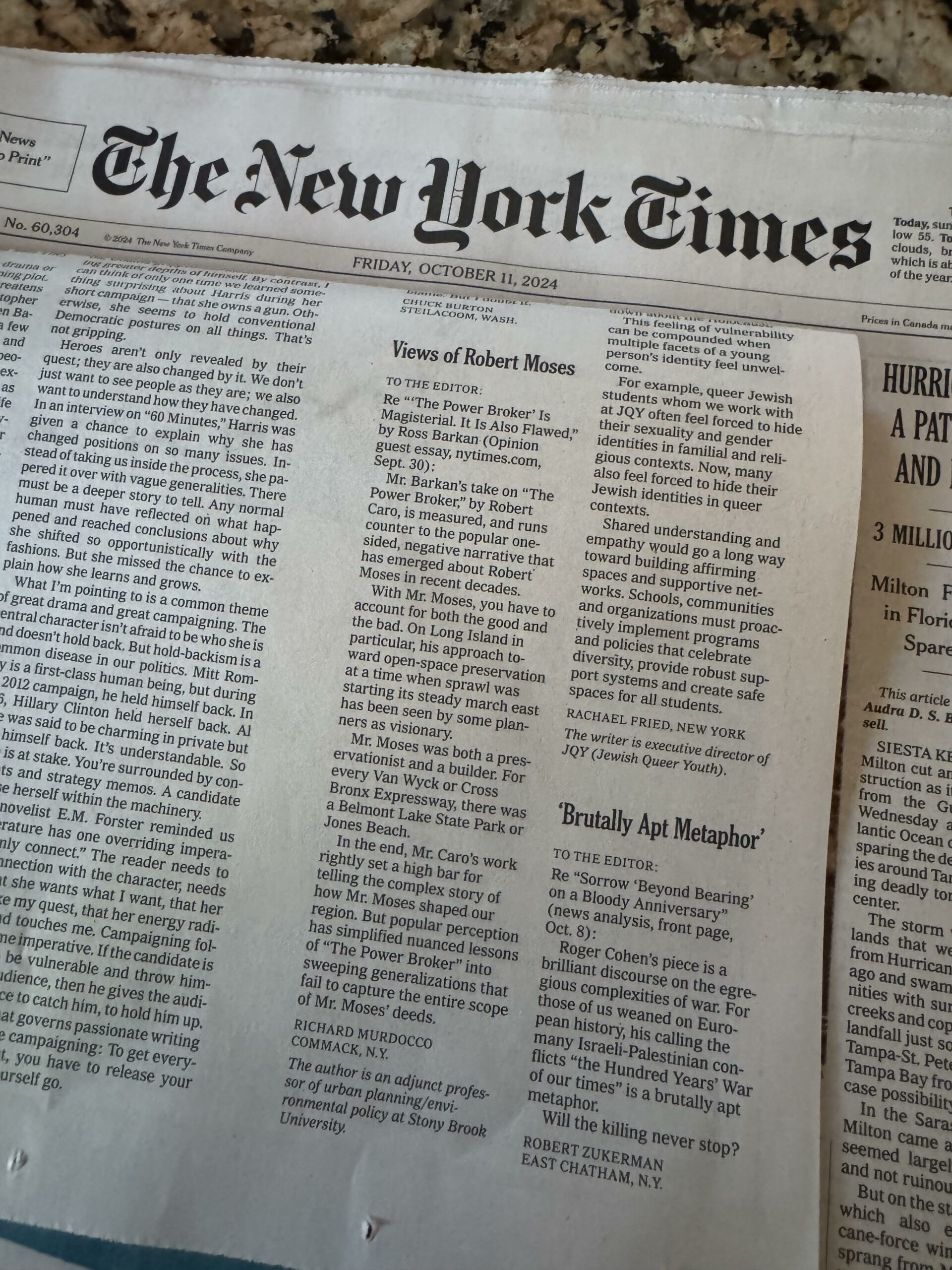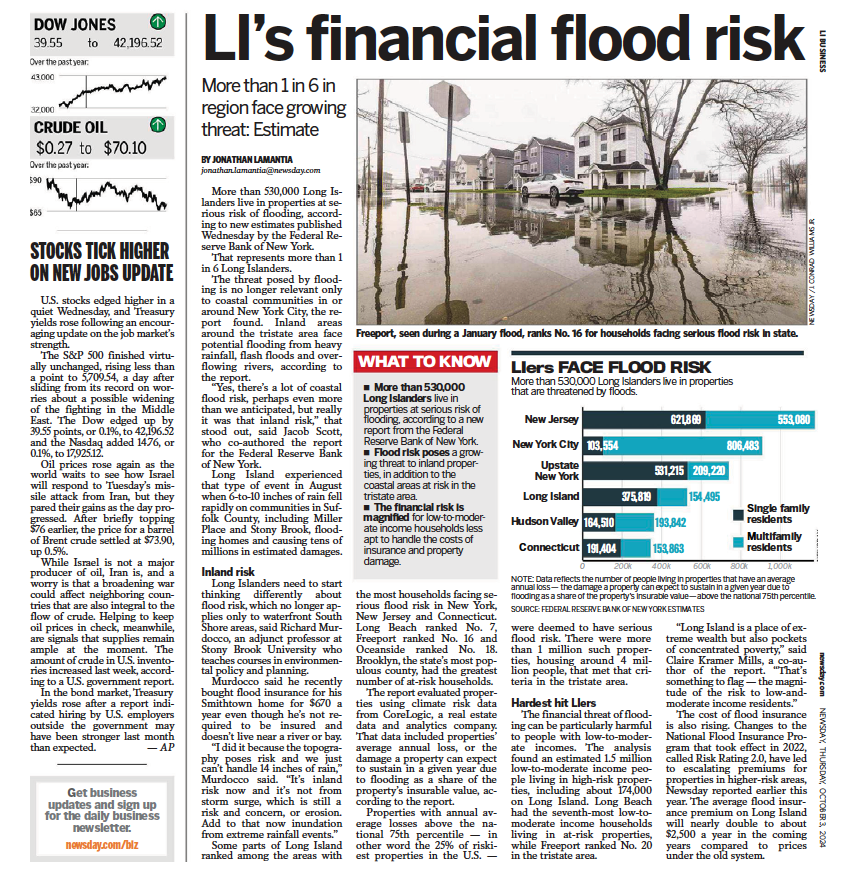The following was published on 4/25/13 on Long Island Business News
I’ve seen articles from a diverse set of sources ranging from the New York Times to new-agey New Urbanist publications speculating why young professionals aren’t buying cars, but the most concise summary of why was found in the Atlantic. An excerpt:
But it’s highly possible that a perfect storm of economic and demographic factors — from high gas prices, to re-urbanization, to stagnating wages, to new technologies enabling a different kind of consumption — has fundamentally changed the game for Millennials. The largest generation in American history might never spend as lavishly as its parents did — nor on the same things. Since the end of World War II, new cars and suburban houses have powered the world’s largest economy and propelled our most impressive recoveries. Millennials may have lost interest in both.
The argument is valid. Unfortunately for Millennials, especially those who plan to live on Long Island, you’re going to need a car. It’s a reality that all suburban youth must accept. To this generation of “connected” Young Islanders who are moving west to the outer boroughs and Manhattan, not driving is possible when you have the world’s best transit network, but when you return to suburbia (and us planners know you will), not driving is immensely difficult. Case in point: I did an experiment the other day. When I had to travel to a conference from Centereach to Melville last week, I entered the addresses into Google Maps and found the following: It was estimated to take 30 minutes from Centereach to Melville via car. Using transit (a combination of both the Long Island Railroad & Suffolk County Bus Service), the same trip would’ve taken one hour 54 minutes. These numbers represent access to one of Long Island’s main employment hubs.
Long Island isn’t physically built for any mode of transportation except the car. Yes, we can increase transit service, but there are logistical problems. First, the region doesn’t have the density to support any transit, and second, there is minimal demand for such service from the majority of Long Islanders. We sure aren’t getting local or federal support to create new transit access anytime soon. As I’ve said before, and this is an unpopular view, we need to further invest in our road network. This is why the younger generations on Long Island will always need a car, and why I hope the connected generation will eventually fall in love with the automobile once more.
Since I was a child, I have always loved cars. Working (well, let’s be honest, watching my brother do the majority of the work) on cars really helped nurture this love. Thanks to my brother, and the countless hours I spent holding the work light and passing him tools, we’ve created a lifelong interest that we both share to this day. Few things beat the cold garage, hot lights and smell of brake cleaner with metal shards flying haphazardly across the room.
Dear automakers, I am immersed in the Internet during the work day; I do not need further distraction on my way home. And to those of my generation who are clamoring for such features, we must realize that our cars and smart phones, while connected, are and should be two distinct entities. Volkswagen should not be making an iBeetle, an iPhone-centric Beetle, which represents the latest attempt to cater to my wayward generation. We should not need our car to read us Facebook updates, or update my Twitter on the go. Even the critical updates from @TheFoggiestIdea can wait until I am at home or at work. Sorry. No. Cars do not need Internet, apps or social media. They need a powerful heart, and styling that evokes passion. Not every car needs to look like a Countach or E-type, but millennials seem to favor “luxury-like” features and connectivity over all else. Many luxury brands are now releasing “entry-level” models that are watered down versions of previous “entry-level” models because many millennials want to be able to say they drive an Acura, Lexus, Audi, BMW or Mercedes like their parents have. The illusion of luxury is not luxury. Young professionals need to realize this. Cars are becoming more bloated and more dependent upon interactive user interfaces that emulate an iPad. Some even have electronic parking brakes. Some models are becoming progressively softer, more millennial friendly. Isn’t progress measured by advancement?
Sorry. No. Cars do not need Internet, apps or social media. They need a powerful heart, and styling that evokes passion. Not every car needs to look like a Countach or E-type, but millennials seem to favor “luxury-like” features and connectivity over all else. Many luxury brands are now releasing “entry-level” models that are watered down versions of previous “entry-level” models because many millennials want to be able to say they drive an Acura, Lexus, Audi, BMW or Mercedes like their parents have. The illusion of luxury is not luxury. Young professionals need to realize this. Cars are becoming more bloated and more dependent upon interactive user interfaces that emulate an iPad. Some even have electronic parking brakes. Some models are becoming progressively softer, more millennial friendly. Isn’t progress measured by advancement?
There is, however, hope in this world of iBeetles. I currently drive a Ford Mustang, and my brother just purchased a Chevrolet Camaro. Yes, the rivalry between Ford and Chevy is intense, but when you break it down, both are one in the same. They represent what I feel is the right direction for the auto industry to take. The fact that these cars still exist makes me happy – giddy even. Both models are styled with cues that harken back to the ’60s and ’70s – the glory days of the American muscle car. Despite their retro styling, both have strong, modern and efficient power plants that should be hailed as achievements of engineering. A base, V6-powered Mustang or Camaro has over 300 horsepower, gets roughly 30 miles-per-gallon and starts at $22,000. That is an incredible performance bargain. And most importantly, both are American expressionism at its finest.
Sadly, I feel that these specs don’t impress a generation that is concerned with what car has the biggest touch screen or can stream Pandora the quickest, but I get the feeling when Ford and GM built both the Camaro and Mustang, they simply didn’t care. In a recession, these automakers created more efficient V6 power plants that are more powerful than their V8 predecessors. Even the V8 variants are more powerful and efficient, sharing the efficiency of V6 engines from just a few years ago. It is a wonderful time to be an auto enthusiast.
You don’t need a six-figure salary to get a truly engaging driving experience. From models like the Subaru BRZ/Scion FRS, Mazda 3 Speed, Volkswagen GTI and of course, the American suite of muscle cars, automotive bliss can be had at a millennial-friendly price. Millennials aren’t buying cars? My fellow generation members, you are sorely missing out.
Richard Murdocco is the principal grantwriter for Community Development Corporation of Long Island, although the views expressed in this post are Murdocco’s alone and not shared by the CDCLI. Follow him on Twitter @TheFoggiestIdea.



